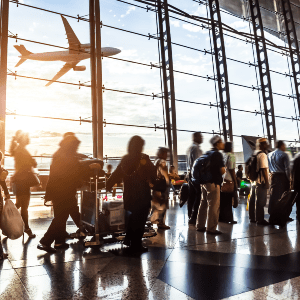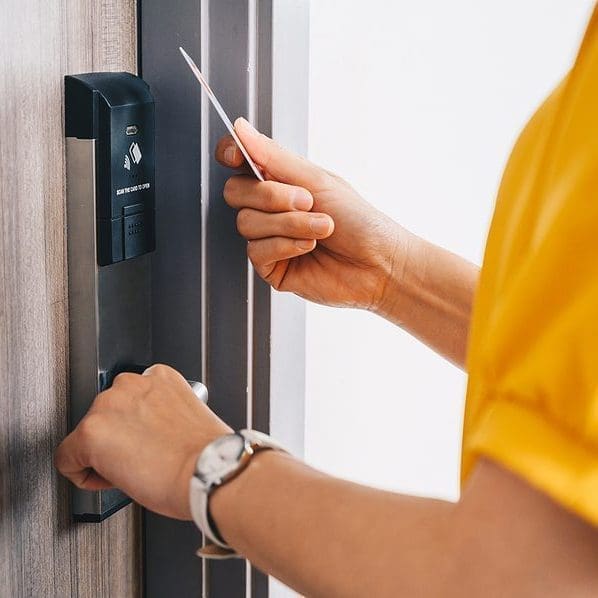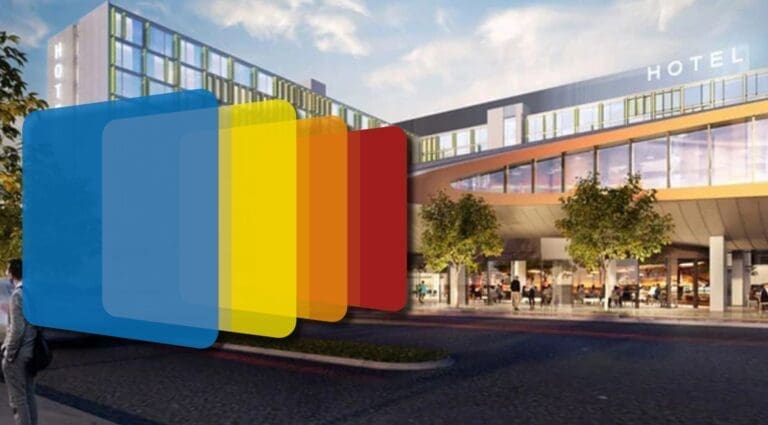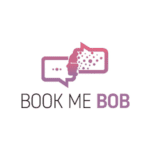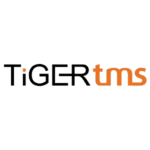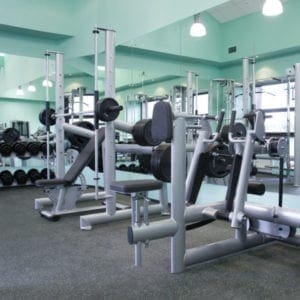‘Where are the ^%**!@ emergency phone numbers when I need them? This is the reaction of a frustrated guest. The following incident is based on a true story.
A man and his wife were travelling overseas. They were staying a few nights in a particular hotel when one evening his wife fell on the floor unconscious. The man panicked and because he didn’t have his mobile (cell) phone with him, he decided to phone reception to get them to call an ambulance. This wasn’t so easy. First he could not find the extension number right away for reception, and then the line was busy. Reception was on another (long) call. Frustrated, he rushed down to the reception desk.
The staff member on duty was on a phone call talking to a prospective guest. When the man tried to interrupt and tell the hotel employee there was an emergency and to call an ambulance, he was sternly told to wait his turn and after the phone call was ended, he would be attended to. Now the man’s frustration turned to anger. He rushed back upstairs to see his wife still lying unconscious on the floor. He clumsily leafed through the guest information folder, swearing under his breath because the emergency numbers were not prominently displayed. It took further precious minutes to find them hidden away in the back of the folder. He called an ambulance and thankfully, his wife recovered after treatment in hospital.
Relying on hotel reception in an emergency is not always enough. In this case, the staff member was not properly trained in prioritising guest service. The delay in calling an ambulance could have cost the woman her life. The employee had actually put the hotel at risk of being sued if the man’s wife had not recovered.
Guests need emergency numbers at their fingertips to make calls directly if the need arises. This hotel, like many around the world, did not prominently display emergency phone numbers in the rooms for the convenience and assurance of guests.
How to help guests navigate through the confusion
Emergency numbers for police, medical (ambulance) and fire (sometimes one number will dispatch you to the specific service required) often differ from country to country. Normally you cannot rely on the number you know from your home country when you are visiting another country.
When I visit a foreign country for the first time, out of habit I usually look for the local emergency numbers when I first walk into the hotel room. I know that emergency numbers are different from country to country, so I want to be informed and prepared for any emergency.
For instance, the U.K uses two numbers; 999 and 112. Most countries in Europe use 112 or 110. Australia uses triple zero (000) for all emergencies. In India,100 is for police, 102 for ambulance and 101 for fire. If you go on holidays to Barbados, the emergency number is 911. In Mexico, it is 066 for police, 065 for medical and 068 for fire. In China, the emergency numbers are 110 for police, 120 medical and 119 for fire.
Thailand uses 191 for police, but also has a special tourist police number, 1155 with English speaking dispatchers. Only a few hotels in Bangkok make this information available in the rooms, however. For medical emergencies you call 1669, 199 for fire.
The most well-known emergency number is probably 911 used in the United States and Canada. In order to help visitors from the US and Canada, some countries in Europe and Latin America have arranged to redirect a 911 call to their local emergency number. I wouldn’t rely on it however, as it always depends on local and political circumstances. It is best to know the emergency number(s) used in the country you are visiting.
If travelers plan to use their mobile (cell) phones while they are travelling overseas, they can download a free app that provides the emergency numbers of all countries. So long as you have mobile service, this works well.
No global display standards
I am always surprised at the different standards hotels follow in posting emergency numbers. They not only vary from country to country and hotel to hotel, but also within hotel chains. In nearly every hotel bedroom I have stayed in, the emergency numbers are found in a different location and sometimes are not even made available to guests. In some hotel rooms, the phones are not labelled with the number for the reception desk either.
When I do find the numbers, they are usually way in the back of the guest information folder. But I have had to read through a comprehensive room service menu, information about local sights and a hotel directory to find them displayed towards the back. If I was searching because of an emergency, I would have lost valuable time.
Best practice for posting emergency numbers requires they are clearly and visibly made available in each room. In most cases this is where the phone is located.
No guest should be forced to spend too much time reading though a pile of flyers, menu cards and directories to find the local emergency number hidden somewhere at the back of the guest information folder. Bear in mind that we live in a global world where hotels have more and more guests arriving from other countries and who sometimes are not familiar with the local language.
If the emergency numbers need to be in the guest information folder (if one is available), they belong upfront or close to the front. Hotel rooms with direct phone lines should have the local emergency number displayed on the phone. No matter if it is a city hotel, a boutique hotel in the country side, or if the hotel has 1 or 5 stars, every hotel should ensure emergency numbers are highly visible.
Is there a better way to provide guests with emergency numbers?
Some hotels provide already emergency numbers via the in-room TV system. This is helpful as long as there is not a blackout.
Other hotels have emergency numbers printed on the key passes that are handed out to the guest on check-in. This is a good idea. However, in my opinion it would be even better if hotels printed the numbers on eachkeycard along with the direct number to call reception. The guest will always carry the key card safely with them during their stay. Often the key pass ends up in the garbage ?bin or is left in the room, but the keycard remains with the guest during their whole stay and they will probably remember where they put it. This information on the keycard will also help guests when they are sightseeing or shopping and face an emergency. Prominently displaying emergency phone numbers is a priority for all hotels.
When we understand how human minds work in emergencies, it can make a big difference in how we provide important information for our guests. Providing simple to find access to emergency numbers it will go a long way toward saving lives, rather than putting them unintentionally at risk.
About the author
?
He graduated in 2002 as a Hotel Management Consultant at the Steigenberger Hotel Management School. He gained valuable experience as a Cost Controller at the Sheraton Hotel & Towers at Frankfurt Airport. He worked three years in Ireland where he built on his experience as a former volunteer fire officer and became a qualified IOSH Health & Safety Officer. He effectively combined the field of Health & Safety with his Assistant Manager positions.
Stefan now consults to hotels to implement innovative and affordable strategies to raise their level of security to meet growing global demands.



